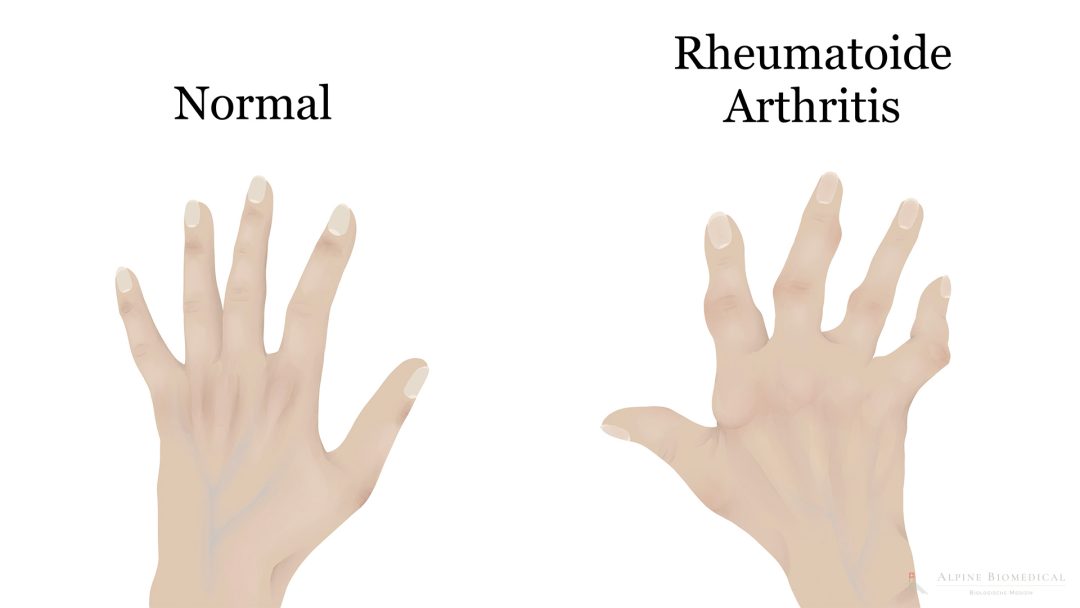Rheumatism

Rheumatism, also known as rheumatoid arthritis or rheumatism, is a collective term for several different diseases of the musculoskeletal system. Rheumatism is an autoimmune disease and can become chronic if left untreated.
Those affected suffer from pain and inflammation in muscles, joints, tendons and connective tissue. The severe local inflammation in rheumatism can lead to long-term destruction of the joints and organs, which is why the inflammation must be contained.
Symptoms of Rheumatism
The symptoms of rheumatism are very variable. Joint pain, connective tissue changes, stiffness and swelling are among the most common manifestations of this disease. The joints can become deformed and mobility decreases. Those affected often also complain of tiredness, exhaustion and fatigue.
Causes of Rheumatism
The causes of rheumatism are varied and influence each other. The following causes of rheumatism are discussed:
- Genetic predispositions
- Exposure to heavy metals and other toxins
- Intestinal problems such as leaky gut, SIBO and intestinal dysbiosis
- Food intolerances
- Hidden inflammations (silent inflammations)
- Micronutrient deficiencies, for example a vitamin D deficiency
- Smoking and alcohol
- Unhealthy diet
Soft Tissue Rheumatism
Soft tissue rheumatism is also known as fibromyalgia and must be distinguished from classic rheumatism. As the name suggests, soft tissue rheumatism tends to affect the soft tissue types of the body. Joints and bones are not affected by soft tissue rheumatism.
We will go into the clinical picture of fibromyalgia in more detail in another article.
Treatment of Rheumatism
Treatment of rheumatism should not only alleviate the symptoms, but also always address the causes. A thorough diagnosis is necessary before treatment in order to identify the individual causes.
Conventional treatment of rheumatism includes drug therapy to relieve pain and inflammation. Supportive measures such as physiotherapy or occupational therapy are also used.
Complementary medical treatments can provide important support. Intestinal health can be restored with the help of intestinal cleansing and proven micronutrient deficiencies can be corrected. Heavy metals can be effectively eliminated with the help of customized chelation therapy.
Hidden inflammations in the body, for example inflammation of the jaw at the roots of the teeth, should be found and eliminated.
Anti-inflammatory measures are also indicated for rheumatism. Anti-inflammatory agents and the removal of autoantibodies with the help of INUSpheresis are effective methods in the treatment of rheumatism.
Containing the inflammation is very important in rheumatism therapy in order to prevent permanent damage to the joints and organs.
Dr. med. Karsten Ostermann M.A.
In the case of rheumatism, the causative factors should be identified and treated with individually tailored therapies. It is important to prevent the destruction of tissue caused by inflammation during the entire therapy.

Further information
The information listed contains relevant topics and serves to improve understanding.